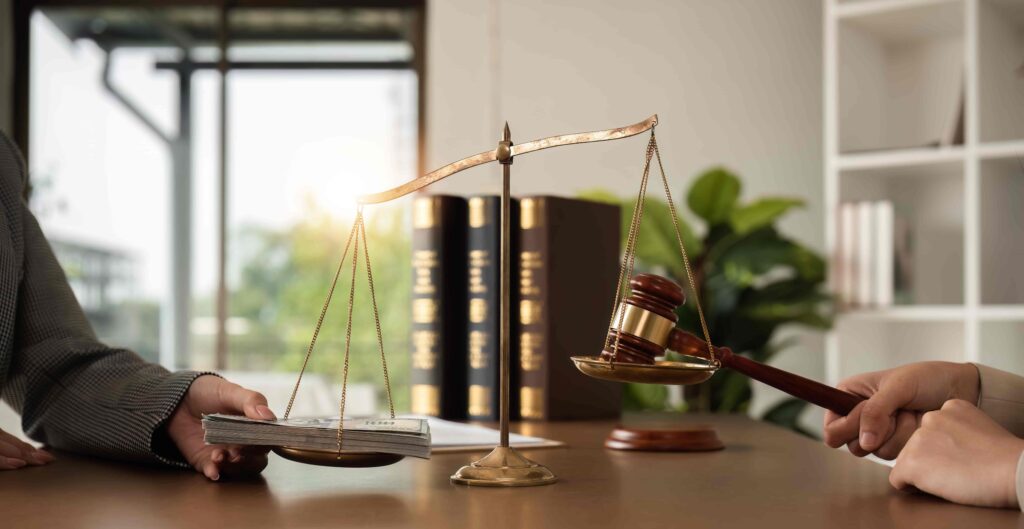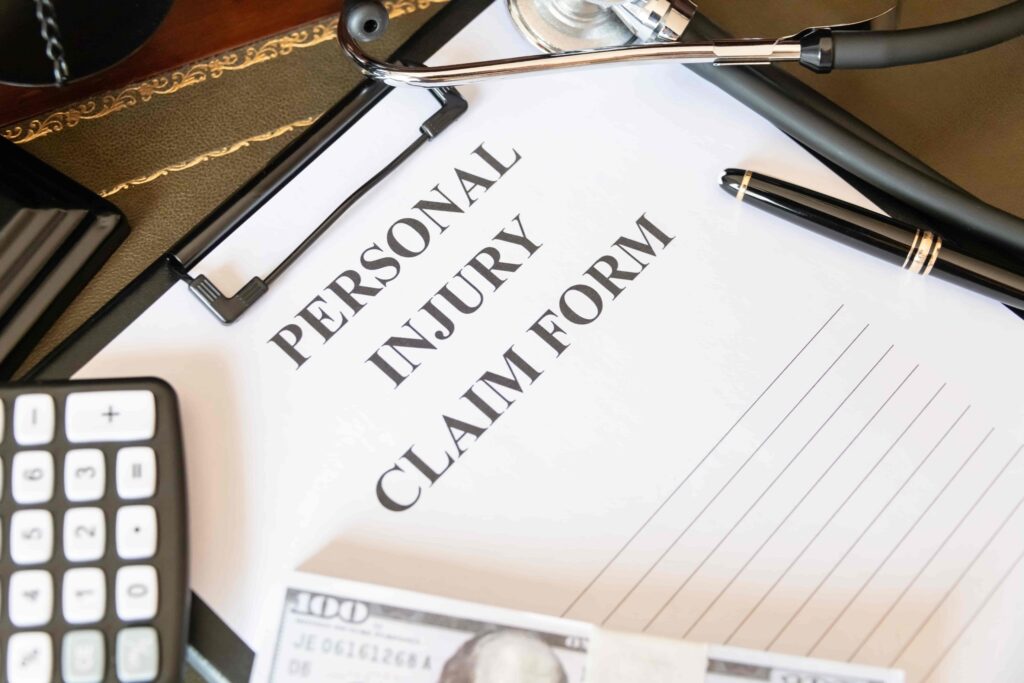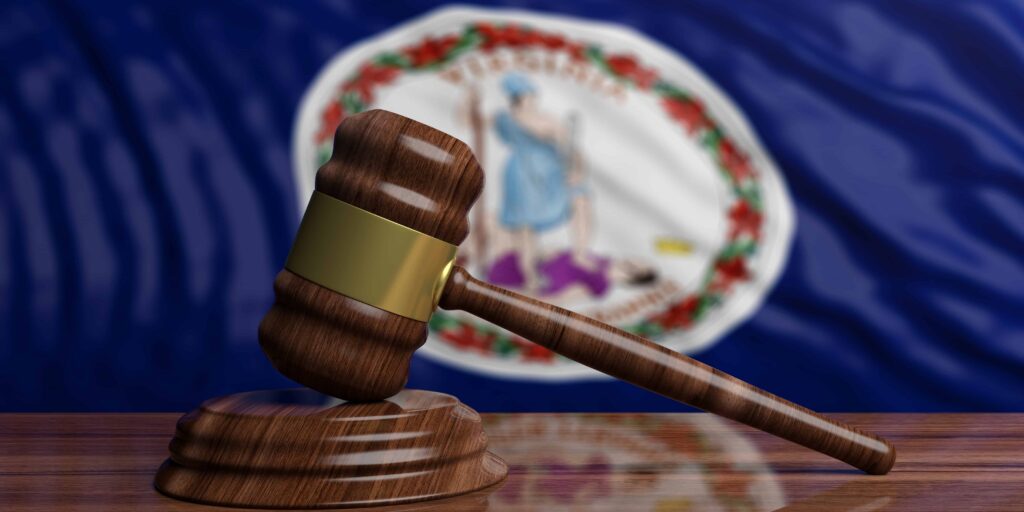Suffering a concussion after an accident can turn your daily routine upside down. When someone else’s careless actions cause that injury, you may feel frustrated and uncertain about what steps to take. What are concussion injury claims? These claims give injured people in Virginia the chance to hold others accountable and seek compensation for medical treatment, lost income, and the life changes that follow a head injury.
An experienced brain injury lawyer can guide you through the legal process, deal with insurance companies on your behalf, and protect your rights. If you or a loved one suffered a concussion, contact a abogado de lesiones cerebrales near you for a free consultation.
Programe una consulta gratuita
Key takeaways about concussion injury claims in VA
- A concussion is recognized under Virginia law as a lesión cerebral traumática that requires medical documentation.
- Accident victims have the right to pursue compensation when negligence causes a concussion.
- Concussion claims can recover medical expenses, lost wages, and compensation for pain and suffering.
- Victims must file within Virginia’s statute of limitations, usually two years from the date of injury.
- Insurance companies often try to downplay concussion claims, so legal representation can make a difference.
What qualifies as a concussion under Virginia law?
Virginia law recognizes concussions as a type of traumatic brain injury. They occur when a blow, jolt, or sudden movement causes the brain to move inside the skull, often leading to symptoms that affect memory, mood, and physical abilities. To bring a successful claim, you’ll need clear evidence that a concussion occurred and that it directly resulted from someone else’s negligence.
Medical definition and diagnosis requirements
Doctors diagnose concussions by evaluating symptoms such as confusion, headache, dizziness, nausea, and sensitivity to light. Medical imaging may not always show visible damage, but clinical evaluation still provides proof. In a legal claim, medical documentation from qualified healthcare providers plays a central role in proving the injury.
Types of accidents that commonly cause concussions
Many different accidents cause concussions. Car crashes, motorcycle wrecks, and truck accidents often involve sudden force that jolts the brain. Slip and fall incidents, workplace accidents, and sports-related injuries also frequently lead to concussions. Anytime another person or entity’s negligence plays a part, the injured person may have grounds for a claim.
Documentation needed to prove your concussion
Strong documentation helps support your case. Medical records, diagnostic tests, and follow-up treatment notes provide a record of your injury. Keeping a journal of your symptoms and how they affect your daily life also strengthens your claim. Employers, family members, and friends may provide statements that describe changes in your ability to work or interact with others.
How much are concussion settlements worth in Virginia?

Settlement amounts vary widely depending on the details of the injury, but concussion claims often result in meaningful compensation. The law aims to restore what you lost, as much as money can.
Factors that influence concussion settlement values
Several factors play a role in determining settlement value. These include the severity of symptoms, whether they are temporary or long-lasting, the amount of medical care required, and how much income you lost due to time off work. Courts and insurance adjusters also consider whether the concussion caused lasting disabilities or changes in your lifestyle.
Economic damages in Virginia concussion cases
Economic damages include medical bills, rehabilitation costs, lost wages, and the expense of long-term care. For example, someone who needs ongoing therapy or cannot return to the same job because of cognitive problems may receive compensation for those financial losses.
Non-economic damages for pain and suffering
Concussions often change how people think, feel, and interact with others. Compensation for pain and suffering addresses the way an injury impacts your quality of life. This may include memory problems, mood swings, headaches, and sleep disturbances. Although harder to measure than medical bills, these damages are just as real.
What evidence do I need for my concussion claim?
Strong evidence supports your case and increases the likelihood of fair compensation. Each type of proof tells part of the story about how your injury happened and how it affects you.
Medical records and treatment documentation
Your medical records act as the backbone of your claim. They show when you sought care, what doctors diagnosed, and what treatment you received. Consistent follow-up care strengthens the link between your accident and your concussion.
Witness statements and accident reports
Statements from witnesses, police officers, or coworkers can help show how the accident occurred. Accident reports often provide details about negligence, which connect the defendant’s actions to your injury.
Expert medical testimony requirements
In some cases, testimony from medical professionals helps explain the long-term impact of concussions. These experts can clarify how your symptoms connect to the accident and what you may face in the future.
How long do I have to file a concussion claim in Virginia?

Time limits apply to every personal injury claim in Virginia. Missing the deadline usually means losing the right to recover compensation.
Virginia’s statute of limitations for personal injury
Virginia law gives injured people dos años from the date of the accident to file a personal injury lawsuit. This deadline applies to most concussion claims.
When the clock starts ticking on your claim
The two-year period generally begins on the day the accident occurred. However, some exceptions exist if the injury was not immediately discovered.
Exceptions that may extend the filing deadline
If symptoms appear later, or if the injured person is a minor, the deadline may be extended. For example, a child injured in a fall may have additional time to file once they reach adulthood. Courts review these exceptions carefully, so legal advice is key.
What challenges do concussion victims face in Virginia claims?
Concussion victims often run into obstacles when they try to recover fair compensation. These obstacles come from how insurance companies defend claims, the hidden nature of brain injuries, and the difficulty of proving long-term effects.
Each of these factors can make it harder for an injured person to get the justice they deserve, but the right legal strategy can overcome them.
Insurance company tactics to minimize concussion claims
Insurance companies use common strategies to limit payouts on concussion claims. They may argue that your symptoms are exaggerated or unrelated to the accident. Some adjusters rely on the fact that concussions don’t always show up on imaging tests like CT scans. They may try to pressure you into accepting a quick settlement before you know the full impact of your injury.
In other cases, insurers may hire their own doctors to give opinions that downplay the seriousness of your symptoms. These tactics are designed to reduce costs for the company, not to ensure you receive the care and compensation you need.
The “invisible injury” problem
Unlike a broken arm in a cast, a concussion often leaves no visible mark. Family members may see changes in your mood, memory, or focus, but outsiders may not notice anything wrong.
Because of this, defense attorneys often question whether your injury exists at all or suggest it’s minor. Many victims find this disbelief frustrating, especially when symptoms interfere with daily tasks.
For example, you might struggle with headaches at work, forget simple details, or feel too dizzy to drive safely, yet the other side claims you should be “fine.” This invisible nature makes medical records and testimony even more important in building your case.
Proving long-term effects and complications
Concussions vary widely in how they affect people. Some victims recover in weeks, while others develop post-concussion syndrome that lasts for months or years. Long-term effects can include sleep problems, mood swings, trouble concentrating, and increased sensitivity to light or sound.
Proving these effects takes more than a single doctor’s note. It often requires ongoing medical treatment, evaluations by neurologists, or neuropsychological testing that shows how the injury impacts your brain function. Insurance companies may argue that your symptoms come from stress, aging, or unrelated medical issues, so strong medical evidence and testimony help show the true cause.
For example, if you once worked in a fast-paced job that required constant focus and quick decisions but now find yourself forgetting simple instructions, your concussion may limit your ability to earn a living. Demonstrating these changes with medical evidence and personal testimony can make the difference in your claim.
Understanding Virginia’s concussion injury laws

Virginia has specific laws and legal standards that apply to personal injury cases, including concussion claims.
Court precedents in Virginia concussion cases
Virginia courts have recognized that concussions can cause lasting harm, even when medical imaging doesn’t show visible brain damage. Prior decisions support the right of concussion victims to pursue compensation when negligence caused their injuries.
How Virginia law protects concussion victims
Virginia law allows injured people to seek compensation through settlement negotiations or trial. Judges and juries can award damages for both financial and non-financial losses, ensuring victims have a way to seek justice.
How our attorneys can help
The lawyers at Allen & Allen understand how deeply a concussion can disrupt your life. We dedicate ourselves to protecting your rights and making sure insurance companies treat you fairly.
Comprehensive case investigation and evidence gathering
Our team investigates accidents thoroughly. We gather medical records, accident reports, witness statements, and other documentation needed to support your claim.
Medical expert network and testimony coordination
We work with medical professionals who can explain your concussion and its long-term effects. Their testimony can help establish the seriousness of your injury.
Aggressive negotiation with insurance companies
Insurance companies often try to pay less than what a case is worth. We push back with strong evidence and firm negotiation strategies to seek fair compensation.
Trial experience in Virginia concussion cases
If an insurance company refuses to act fairly, we prepare your case for trial. Our attorneys have experience presenting concussion claims in court and fighting for justice before a judge or jury.
¿Por qué elegir Allen & Allen?

Allen & Allen has served injured people in Virginia for more than a century. Since 1910, our firm has guided clients with integrity, respect, compassion, and trust. These values shape everything we do. We commit to more than simply providing you with legal representation.
We commit to making your fight our fight, ensuring you are treated fairly by the insurance companies, and obtaining justice on your behalf. That’s what we mean when we say “I am an Allen.” Families across Virginia have relied on us for generations because of the care we show and the results we pursue.
Frequently asked questions about concussion claims
Can I still work with a concussion while pursuing a claim?
Yes, but you should follow your doctor’s advice. Some people can continue working with minor restrictions, while others may need time off. If you push yourself too soon, symptoms may worsen. Any lost wages related to your injury may be included in your claim.
Do I need to see a specialist for my concussion injury?
Primary care doctors can diagnose concussions, but specialists such as neurologists or neuropsychologists may provide more detailed evaluations. Seeing a specialist often strengthens your case by showing the depth of your injury.
What if my concussion symptoms don’t appear immediately after the accident?
Some symptoms, like memory issues or mood swings, may not appear until hours or days after the accident. Delayed symptoms still count as evidence if a doctor confirms they relate to the accident.
How do I prove my concussion affects my daily life?
Journals, testimony from family and friends, and statements from your employer can all demonstrate how the injury changes your daily routine. These forms of proof help show the real-world impact of your concussion.
Can family members testify about changes in my behavior after my concussion?
Yes. Family members often notice changes in mood, memory, and behavior. Their testimony provides valuable insight into the injury’s effect on your relationships and daily functioning.
Contact our brain injury lawyers in Virginia now
Concussion claims must be filed within strict time limits, so don’t wait to seek help. Allen y Allen has stood by injured Virginians for more than 100 years, guided by compassion and commitment. We work to protect your rights, hold negligent parties accountable, and pursue the justice you deserve. Póngase en contacto con nosotros hoy para una consulta gratuita.
Programe una consulta gratuita


